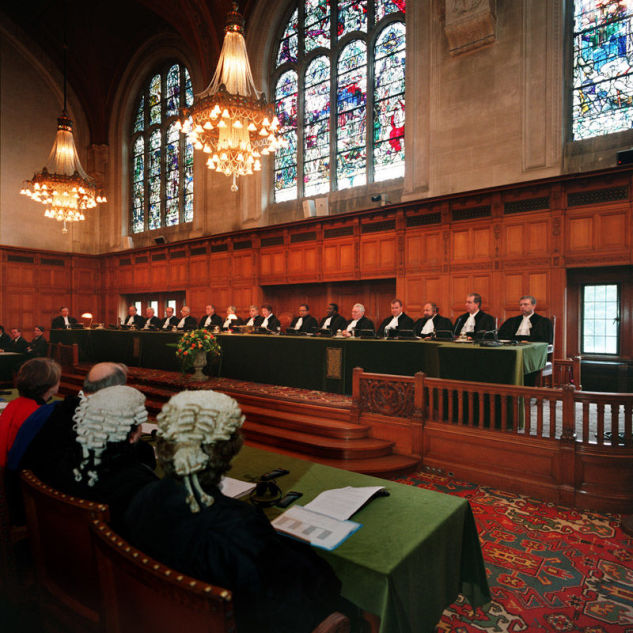On 18 April the first public session of the International Court of Justice, established by UN Charter, was opened. Its mission was “to carry out by peaceful means, in accordance with the principles of justice and international law, the settlement or resolution of international disputes or situations that may lead to the violation of peace”, and it has become one of the main bodies of the UN.
The International Court of Justice took over from the Permanent Court of International Justice, created by the League of Nations. The functions of the Court are to resolve legal disputes which have been referred to it by states and to issue an advisory opinion at the request of the General Assembly or the Security Council.
Before starting work, Paul-Henri Spaak, President of the first session of the UN General Assembly, instructed the judges thus: “I would not dare to claim that the Court is the most important body of the United Nations, but... there is nothing more important than this body... Your work is likely to be less visible than it might be elsewhere, but I am convinced that it`s exceptionally important."
The first case “United Kingdom v Albania” was completed by the court in 1947. In 1946 in the Corfu Channel, British ships had hit mines in the sea three times because the Albanian government decided to ignore the British right of innocent passage. In December 1949, the court awarded Britain compensation of £843,947. At the same time, the Court decided that operations to remove mines that had been carried out by the British in the absence of prior consent from the Albanians were illegal.
Source:
Igor Glebov “International Law”. Textbook
























